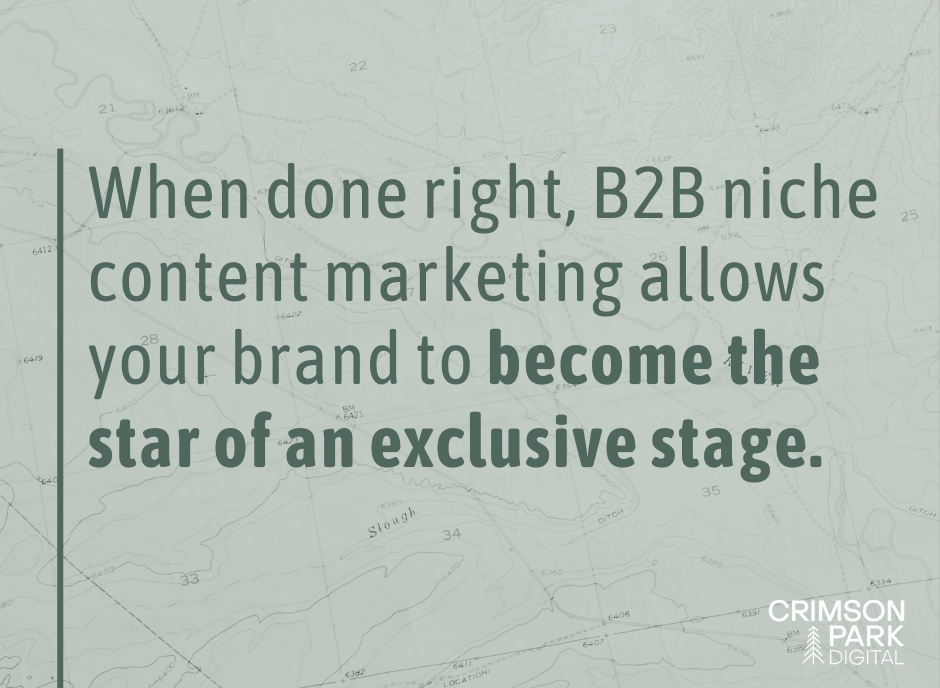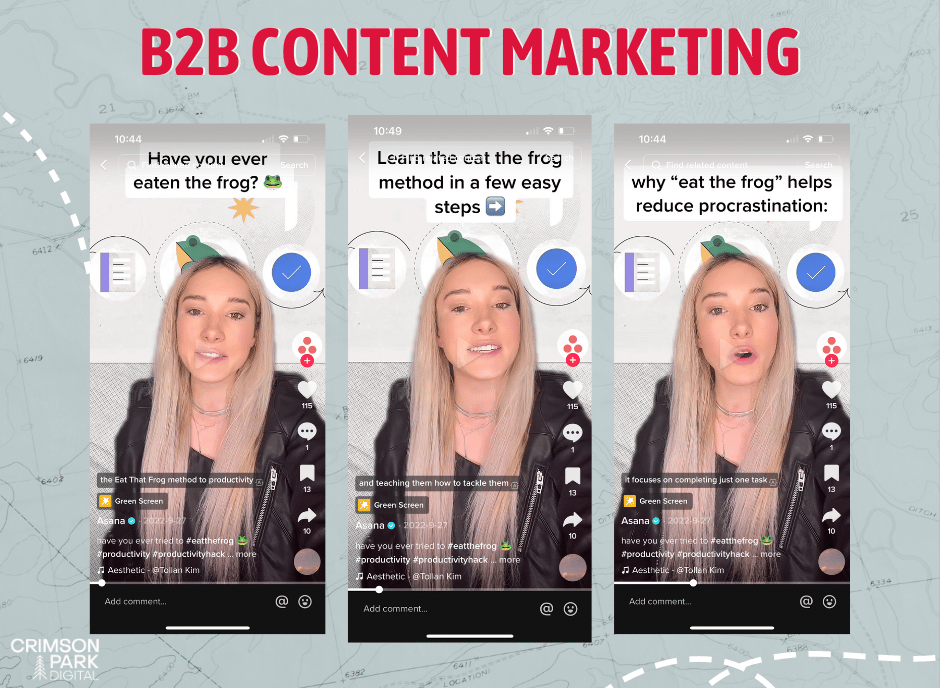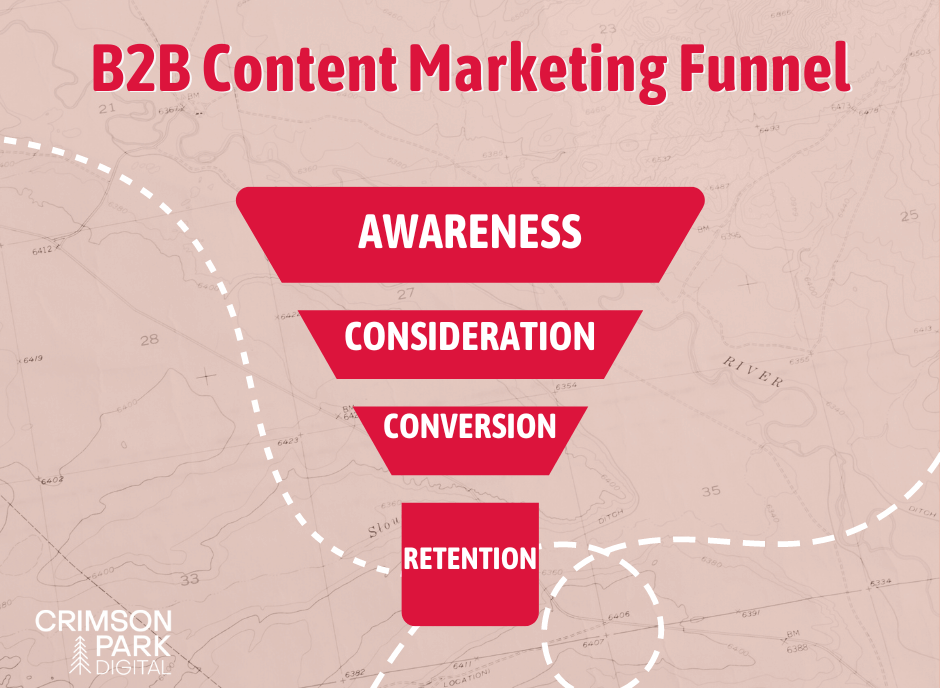Unlocking Niche Markets: A New Angle on B2B Content Marketing
Taking advantage of niche audiences revolutionizes B2B content marketing, turning the often-overlooked niche markets into boundless opportunities. Vast amounts of content is being shared online every day. In this continuous content downpour, positioning your business in a niche market creates differentiation. Introducing the latest in B2B content marketing trends: niche marketing.
Delving into niche markets is no longer elective; it’s imperative. Welcome to the future of B2B content marketing.
The Power of Niche Marketing for B2B Brands
Standing out is a task easier said than done. This is where niche marketing plays a transformative role for B2B entities. Instead of marketing to everyone, this strategy focuses on targeting an exclusive segment of the marketplace. This focused approach can lead to several benefits:
First off, niche marketing provides businesses with the opportunity to become the stars of a smaller stage. When you operate in a small subset, becoming the go-to expert in your niche inspires trust and fosters long-term relationships with customers.
Niche marketing may initially seem like you’re limiting potential prospects, but it actually invites greater customer loyalty. Serving a specialized segment of the market allows businesses to focus on their unique needs and enhance their customer experience. This, in turn, creates more engaged and loyal customers.
In addition to these, niche marketing can also decrease competition. Less competition means you can charge higher prices, profit more, and achieve better positioning. On the contrary, more competition can dilute brand value and force you to compromise on prices.
The Challenges of Niche Marketing for B2B
Even with its silver linings, niche B2B marketing comes with a unique variety of challenges. The most compelling is the narrow customer base. Niche marketers have fewer customers to sell to, and losing even a few can impact sales significantly. Therefore, measuring customer satisfaction levels and employing retention strategies becomes crucial.
Secondly, there is an inherent risk when focusing too much on a niche market. If the niche loses relevance over time, or technological advances render your unique selling proposition obsolete, it can bring about a swift fall for the company.
This is why it’s so important for companies to keep abreast of industry and competitive trends and adapt their content strategies accordingly to stay relevant.
Step-by-Step Guide to Developing a Niche Marketing Strategy
To effectively tap into niche markets, a targeted B2B content marketing strategy is required. Here’s a step by step guide to get started:
Step 1: Identifying Your Niche
Pinpointing your niche is essential in tailoring your content marketing efforts. Focus on areas of your market that are overlooked or underserved, so you can create a potent foundation for your B2B content marketing strategy.
This involves intensive market and competitor analysis. Dig into data, study trends, and evaluate potential opportunities that cater to your business offering. Looking into relatively unseen sectors might surprise you with their profitability potential.
Step 2: Understanding Your Niche Audience
After identifying your specific niche, the next step is understanding the audience that operates within it. This includes recognizing their pain points, requirements, and behavior patterns.
As an example, Asana uses authentic social media content to support their niche B2B audience segments. By speaking directly to the pain points their platform solves, they are more likely to convert with this content.
Conducting surveys, engaging on social networks, and studying industry reports can help you comprehensively understand your audience. The more you understand them, the more precise your content will be.
Step 3: Creating Specialized Content
Armed with detailed insights about your niche, you can now churn out highly specialized content. This content should resonate with your identified audience (relevance is key), providing value and solutions to their unique needs.
Content can take numerous forms, such as:
- Blog posts
- Social media posts
- Whitepapers
- Case studies
- Webinars
Each piece of content should aim to educate, inspire, and engage your niche audience.
Step 4: Promoting Your Content
Having quality content isn’t enough – sorry, not sorry. Efficient distribution, across channels that your niche audience frequents, is essential.
Social media, email newsletters, and collaborations with industry influencers can be powerful promotional tools. Precision, not just presence, defines the coverage your content receives. Your content should reach the right people at the right time.
The Rise of Personalized Content for B2B Brands
Personalized content isn’t new, but the digital age has brought it into focus in novel ways. With the advent of advanced algorithms and data analysis, creating bespoke content that caters to individual customer needs and preferences has become more precise and effective. This harmonious blend of technology and marketing is crafting a future where one-size-fits-all content will become a thing of the past.
Performance analytics spit out data, indicating what works and what doesn’t, refining content creation processes. Brands leverage this data to cater to micro-niches within their demographic, which boosts engagement and cultivates loyalty. Personalized content morphs from being a marketing strategy to a powerfully interactive tool, fostering genuine connections.
The Power of Video for B2B Content Marketing
Video is becoming the content type of choice, swiftly conquering social media platforms and business websites alike. The human brain processes visual data faster than text, making the video medium a perfect blend of entertainment and information. A compelling visual narrative grabs attention, sparks engagement, and triggers emotional responses.
Brands pushing the envelope in video content creation are riding the high tide. Explainer videos, live streams, webinars, virtual tours, product demos – the range of video content serving different purposes is dynamically vast. This medium is rewriting the rules of content marketing with its immersive experiences.
The Importance of SEO in B2B Content Marketing
SEO stands at the core of every successful content marketing strategy. The rules of the game might evolve, but the game itself remains consistent. SEO services, spread across keyword research, meta descriptions, alt tags, and backlinks, fuel the discoverability of your content. Optimizing your content for search engines is akin to laying a breadcrumb trail leading your audience to your doorstep.
AI and machine learning are revolutionizing SEO. Voice search and mobile-first indexing are jostling for attention, adding more facets to this already multi-dimensional beast. Brands that fail to harness the power of SEO might find themselves stuck in obscurity.
The interplay of these B2B content marketing trends is shaping a new landscape. Understanding these trends and impacts becomes pivotal as we navigate these terrains.
Understanding the B2B Content Marketing Funnel
Being keenly aware of your marketing funnel gives you an upper hand in the competitive realm of content marketing. Knowledge of this key tool can alleviate the pressure to continuously generate fresh ideas, and streamline the path from Prospect to Lead.
The traditional content marketing funnel flows from the ‘Awareness’ stage, where potential customers become conscious of your business. The next step is the ‘Consideration’ stage, where your audience assesses your offerings against the competitors. The ‘Conversion’ stage is the pinnacle of the journey, where potential clients transform into solid leads. Last but not least is, ‘Retention’, where the focus lies on maintaining customer loyalty.
Ironically enough, the funnel does not always retain its form. Consumers require a more tailored approach, so the outline of the traditional funnel warps and adapts, becoming more of a lifecycle “flywheel” than a funnel.
Heading into a Niche Dimension: Your B2B Marketing Future
After identifying niche markets, tailoring content for them, and leveraging digital tools to engage effectively, navigating niche B2B content marketing should feel a lot easier.
The knowledge you’ve garnered here is your roadmap to an understated marketing landscape welcomed by many, yet truly understood by few. It’s a game-changer, offering untapped opportunities to create meaningful relationships with your business clientele.
Ready to identify and dive into your designated niche? Our team of B2B content marketing agency experts will strategize your content and engage your audience.
Frequently Asked Questions
What are B2B niches and B2B niche marketing?
B2B niches refer to specific segments within the business-to-business (B2B) market where companies operate. B2B niche marketing involves targeting and catering to these specialized segments with tailored products or services. It focuses on understanding the unique needs, challenges, and preferences of niche audiences within the B2B sector, allowing businesses to better address their requirements and establish themselves as experts in those particular areas.
How do you promote B2B content?
Promoting B2B content involves leveraging various channels such as social media platforms (LinkedIn, Twitter), industry forums, email newsletters, and targeted advertising. Engaging with industry influencers, participating in relevant online communities, and optimizing content for search engines also enhance visibility. Additionally, collaborating with partners, hosting webinars, and attending industry events can amplify reach and establish credibility within B2B circles.
What types of content should B2Bs use for marketing?
B2Bs should utilize diverse content formats tailored to their audience's preferences and the stages of the buyer's journey. This includes informative blog posts, whitepapers, case studies, and eBooks to educate prospects. Additionally, engaging videos, webinars, podcasts, and interactive tools can enhance brand visibility and credibility. Leveraging user-generated content, testimonials, and industry reports further solidifies trust and authority in the B2B space.


